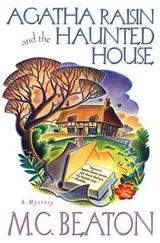Childhood ends in all different ways. One way was by understanding her parent’s fights, which she watched like a spectator at a tennis game. “If you don’t like the way we live,” her father yelled, “get a job.” “I’ve had your children and you’re going to support me,” her mother yelled. He slapped her and she slapped him. Or it ends when the facts of life, as they were called, are flaunted in your mirror, at a stage called puberty, a dumb word Grace thought. Or childhood ends on the playground, where she once played potsy and now was being shown pornography, a word she knew without knowing how but didn’t tell Little Louie. He shuffled the pastel-pink playing cards much too fast, so that the naked bodies blurred as if they too were shocked. Little Louie had dark circles under his eyes Grace attributed, as she did his diminutive size, to early coffee drinking. He was a naughty, ugly boy, in love with Grace, who didn’t know it. They got reported to the principal — Grace’s first brush with the law — and he threatened to call in their parents. Louie acted as if he didn’t care, but Grace cried and begged the principal not to. The principal let the kids off as though he were commuting a death sentence to life. Grace could never again face the principal, and Louie could never again face Grace, and she will have no memory of his presence on that playground or in her life ever again after that time. She was convinced now that she was a sinner, because she had looked at dirty pictures. When she had asked her mother, Do you, we, believe in sin? Ruth had said yes, because there is evil in the world. Real evil, Grace asked, like the devil? Ruth looked at her daughter seriously. She didn’t believe in talking down to children. There may not, she said, be an actual devil, but there is a lot of evil in the world, a lot of sin, and sometimes I wonder. It’s best not to trust people too much. Grace couldn’t trust Louie; he was a little devil, getting her into trouble, making her sin. Grace didn’t tell anyone what she’d seen, learning to distinguish between good and bad knowledge.
Now she too had a secret, a secret she took to camp with her, where she was sent away for three weeks. An unwilling camper — Ruth told her it was time to grow up — Grace lived in a bunk with seven other girls her age, but her friend was Sandy, an older girl of fifteen who had a broken nose and biceps. All the girls thought Sandy was strange, but she was devoted to Grace, doing favors for her, taking pictures of her in front of the bunk. And late at night, giving her back rubs, and Grace knew her power, another secret. She played the special game when things were innocent, because one was unaware, or thought to be unaware. Sandy went home unacknowledged. Years later Grace wondered what had happened to all those pictures of her looking so cute, and what had happened to Sandy.
That summer her breasts grew and Grace mailed away for “Sally, Mary and Kate Wondered,” a twelve-page pamphlet with diagrams and line drawings of the girls in the title. When it finally happened, Ruth announced it at dinner. Richard looked like he was about to laugh and her father cleared his throat and said, Now you’re a woman. Grace stared at him, then continued making drawings on a paper napkin, remembering that two years before she thought she might be an adult. Out shoe-shopping, the salesman had measured her feet and told her mother Grace was now a size five. “We’re going,” Ruth stated, as if insulted by the salesman, who had always measured Grace’s feet. She pulled Grace after her, leaving him with a shoe in his hand. “That’s an adult size,” Ruth whispered to Grace, marching her toward that other world, Ruth’s favorite shoe store, and Grace felt her childhood had reached another ridiculous end. Now, at the table two years later, her father pronounced her a woman. Was there such a difference, she wondered as she colored in, with a Crayola, the tiny patterns on the paper napkin. Richard was horrible, she thought, looking at his familiar face, but one of his friends was so cute, Grace died whenever he came to the apartment. She hoped he wouldn’t say anything to him about her being a woman.
All the girls stopped speaking to Grace. It was her turn. The last year before high school, the girls ignored her for months and months, way beyond the normal time for exclusion. It did something to Grace, walking to school alone, being ignored in the halls, or whispered about behind her back. “You must have done something wrong,” Ruth said, perceiving her daughter’s imperfections as personal insults. Even her brother assumed it was her fault, but he took her to a movie now and then, meting out the angry sympathy a seventeen-year-old boy offers a younger sister. She made friends with a nice, unpopular girl called Marlene, who was striking in her indifference to her unpopularity. This distinguished her in Grace’s eyes, and while Grace couldn’t understand how she could stand it, she admired her for it. The boys kept talking to her and asking her to parties she couldn’t attend because the girls would be there. Grace was set strangely upon her own devices.
During the trouble, as her family called it, as if Grace were pregnant out of wedlock rather than out of sympathy with her friends, she tried to see herself as enduring a trial by fire from which she had to emerge stronger. She read more than she ever had and wrote down sentences that applied to victims like herself, to read over and over when the phone rang and she knew if she picked it up someone would just hang up. Her dog Lady kept her company. Ruth had gotten Grace the dog three years before, for her birthday, mother and daughter still linked by their love of animals, although Ruth got rid of them when they got in the way or were too much trouble.
Lady was pregnant when they rescued her from the ASPCA, and Ruth said that’s why she was abandoned. Terrible people do things like that to defenseless animal, but they’ll be punished. Every time Grace hurt herself Ruth said that God was punishing her. When she was older she asked Ruth if she believed in God. Ruth told her she was an agnostic, someone who doesn’t know, was the way she put it. She was washing dishes. Then why do you say that God is punishing me, if you’re not sure? Ruth put out her cigarette, which was wet with a rosy stain where she sucked it. If I don’t believe in God it doesn’t mean that you shouldn’t or don’t have to. Ruth looked out the window over the sink. I’m an agnostic because an agnostic is a realist. You will be too. Grace considered this a compliment, since they fought most of the time, even during the trouble. She repeated the comment to Celia, who had continued to speak to her, but not at school, where the trouble might at any time happen to her. The two friends didn’t discuss the terms of Celia’s neutrality; it just existed.
Just as suddenly as the trouble had begun it stopped, and Grace was allowed back into the fold. But this was never, never going to happen to her again. Never. For she had determined that when it was over — the word over had magical properties — when it was over, she would have emerged a new person, a girl much too irresistible and tough for that to happen to ever again.
The house was never quiet. Ruth and Grace fought about everything. Grace took her dinner in front of the TV or in her room. She hated the way her mother chewed, she hated the sound. Ruth called her names and dumped her dresser drawers, and Grace fought back by ignoring her, or giving her dirty looks. You’re bad, you and your stupid friends, her mother would yell. Grace had been told by her algebra teacher that when she was good, she was very very good, but when she was bad she was better. Now that Grace was a freshman in high school, or a fresh girl, as Ruth put it, when she got to school, home didn’t exist.
Читать дальше












